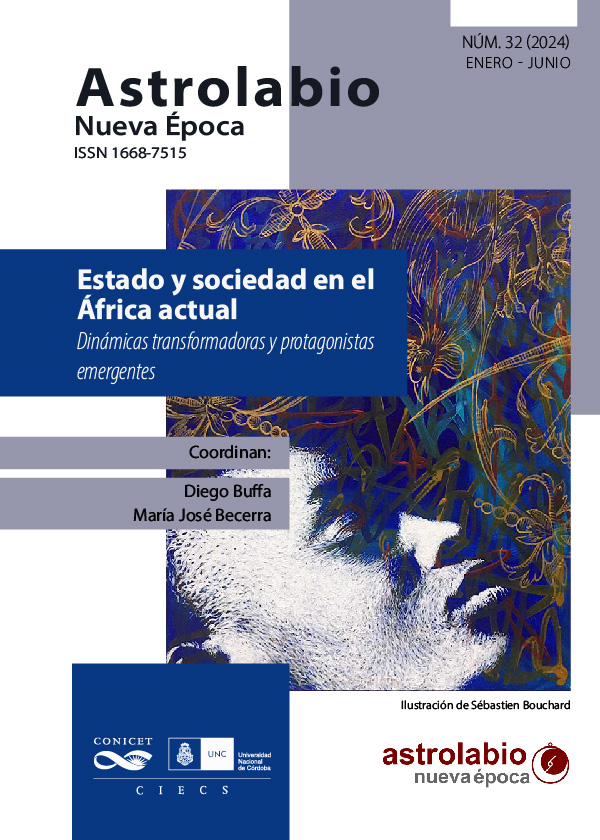Araripe Júnior and the Hyperesthesia of the Tropical Serial
Main Article Content
Abstract
In this article, through an arch-philological approach, we propose to accentuate the becoming of Araripe Júnior's critical association between hyperesthesia and the effects of reading serials from his first approaches to the reception of naturalism by young writers, at the moment in which periodical publications grow exponentially and a reading public is constituted. We notice, in turn, a recurring association between a serialized literature considered disposable and a reader characterized as social waste. The survey of his unique conception of literary hyperesthesia is productive to draw new approaches to his outstanding theory of tropical style and Brazilian obtundation, projected as a survival in the literary canon and in the serials of his contemporaries. At the same time, we emphasize the prescriptive sense of Araripe Júnior's essays, aimed at young serial writers, to ward off the revulsive potential of naturalistic hyperesthetic literature on the mass public and to redirect its innervating lyricism towards the constitution of a psychology of tumult, which contributes to an aesthetic and cultural renewal. Also around hyperesthesia, the prescriptive intervention of his essays seeks to regulate the influence of a monstrous Zola, in his ability to show and make people feel the reality of precarious modern life. Finally, we notice his approach to literature as a toxin, in which a pharmacological key of modern Latin American literature resonates.
Downloads
Article Details

This work is licensed under a Creative Commons Attribution-NonCommercial-ShareAlike 4.0 International License.
Astrolabio, Nueva Época está protegida bajo licencia Licencia Creative Commons Atribución-NoComercial-CompartirIgual 4.0 Internacional. La propiedad intelectual de los artículos pertenece a los autores y los derechos de edición y publicación a la revista. Los artículos publicados podrán ser usados libremente para propósitos científicos y académicos, siempre y cuando se realice una correcta citación de los mismos. Cualquier persona física o jurídica que desee reimprimir parte o la totalidad de algún artículo, deberá obtener permiso escrito de los editores de Astrolabio Nueva Época, quien lo otorgará con el consentimiento del autor.
References
AGAMBEN, Giorgio. (2010). Homo sacer. Buenos Aires: Adriana Hidalgo.
ANTELO, Raúl. (2001). Transgressão & Modernidade. Ponta Grossa, Paraná: Ed. UEPG.
ANTELO, Raúl. (2015). Archifilologías latinoamericanas. Villa María, Córdoba: Eduvim.
ARARIPE JÚNIOR, Tristão de A. (1958). Obra crítica de Araripe Júnior. Tomo 1: 1868-1887. Rio de Janeiro: Ministério da Educação e Cultura - Casa Rui Barbosa.
ARARIPE JÚNIOR, Tristão de A. (1960). Obra crítica de Araripe Júnior. Tomo 2: 1888-1894. Rio de Janeiro: Ministério da Educação e Cultura - Casa Rui Barbosa.
ARARIPE JÚNIOR, Tristão de A. (1963). Obra crítica de Araripe Júnior. Tomo 3: 1895-1900. Rio de Janeiro: Ministério da Educação e Cultura - Casa Rui Barbosa.
AZEVEDO, Aluísio. (1973). O Mulato. São Paulo: Martins Fontes. (Edición original, 1881.)
BUCK-MORSS, Susan. (2005). Walter Benjamin. Escritor revolucionario. Buenos Aires: Interzona.
DIDI-HUBERMAN, Georges. (2009). La imagen superviviente. Historia del arte y tiempo de los fantasmas. Madrid: Abada.
DIDI-HUBERMAN, Georges. (2010). Atlas. ¿Cómo llevar el mundo a cuestas? Madrid: TF - Museo Reina Sofía.
FOUCAULT, Michel. (2007). El poder psiquiátrico. Curso del Collège de France (1973-1974). Buenos Aires: FCE.
GARCÍA MEROU, Martín. (1889). Perfiles y miniaturas. Buenos Aires: Imprenta de Pablo Coni e Hijos.
GROUSSAC, Paul. (1897). “La educación por el folletín”. La Biblioteca,18, 313-324.
GUMBRECHT, Hans Ulrich. (2014). Atmosfera, ambiência, Stimmung. Sobre um potencial oculto da literatura. Rio de Janeiro: PUC Rio.
HAMACHER, Werner. (2011). 95 tesis sobre la filología / Para - la filología. Buenos Aires: Miño y Dávila.
LACLAU, Ernesto. (2011). La razón populista. Buenos Aires: FCE.
LUDUEÑA ROMANDINI. (2016). Principios de espectrología. La comunidad de los espectros II. Buenos Aires: Miño y Dávila.
NODARI, Alexandre. (2008). “Modernismo obnubilado: Araripe Jr. precursor da Antropofagia”. Ponencia presentada en el VIII Seminário Internacional de História da Literatura. Porto Alegre, octubre.
NORDAU, Max. (1902). Degeneración. Madrid: Librería de Fernando Fé.
RAMOS, Julio. (2007). “Ficciones del sujeto moderno. Diálogo improbable entre Walter Benjamin y Fernando Pessoa”. Investigaciones Literarias, 15, 161-178.
RIBOT, Théodule-Armand. (1900). La psicología de los sentimientos. Madrid: Librería de Fernando de Fé.
ROMÉRO, Silvio. (1888). História da literatura brasileira. Tomo 2. Rio de Janeiro: Garnier.
SANTIAGO, Silviano. (2000). Uma literatura nos trópicos. Rio de Janeiro: Rocco.
SARLO, Beatriz. (1985). El imperio de los sentimientos. Buenos Aires: Catálogos.
VENTURA, Roberto. (1991). Estilo tropical. São Paulo: Companhia das Letras.
VERÍSSIMO, José. (1954). História da literatura brasileira. Rio de Janeiro: José Olympo.
WERNECK-SODRÉ, Nelson. (1965). O naturalismo no Brasil. Rio de Janeiro: Civilização Brasileira.
WOLFF, Jorge. (2009). Telquelismos latino-americanos. La teoria crítica francesa en el entre-lugar de los trópicos. Buenos Aires: Grumo.

